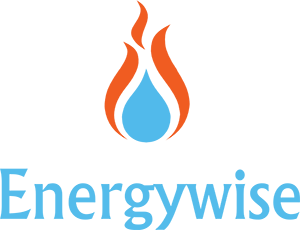Knowing where to start when you need a new boiler, cooker or fire can be daunting. There are so many different types of appliance on the market, where do you begin? How do you know who should install it and what paperwork you need? Follow these simple steps to help you get the right gas appliance for your home and make sure it is installed safely and legally.
Before you start
- Talk to a Gas Safe registered engineer. Ask advice on what you need for your home. You can find a registered engineer using our online service or by calling 0800 408 5500. Make sure they are qualified for the work you need doing.
- Be clear about the work you need and ask for a free written quotation from two or three business to ensure you are getting best value. The quotes should include; a description of the work and materials to be used, the make and model of the appliance(s) and the location of the appliance(s).
- Ask each business for two or three references from earlier customers. Contact these customers to find out if and how happy they were with the work and how it was carried out.
- Ask to see proof of the businesses public liability insurance. Does the work affect your home and contents insurance – contact your own insurance company.
After you have chosen your engineer
- Agree
the work and get it confirmed in writing. Details will vary depending
on the installation but ensure you cover the basics such as:
- Name, address and telephone contacts of yourself and the installation business.
- The agreed price and the work it covers, methods of payment and how any additional works will be agreed.
- The date the work will start, how long it will take and any late finish penalties you may want to agree on.
- Who is going to notify Local Authority Building Control and when you will receive your certificate (where required).
- The work to be undertaken, the appliances included and the materials to be used.
- The details of any sub contractors to be used including their registration details.
- Who will dispose of any refuse and make good any remedial works to the property.
- After sales service such as warranties on appliances, materials and workmanship including the arrangements to remedy any defective work or damage to property.
- Deposits are normally only payable where specific or custom ordered items are needed or the installation will take longer to finish. In other cases, avoid paying deposits but you need to agree any staged payment plan in writing.
Before work starts
- Every gas engineer carries a Gas Safe Register ID card. Before any work is carried out always make sure you ask to see their ID card.
On completion
- Make sure any required commissioning documents are completed by the engineer; such as the Benchmark for many boilers. Benchmark is the nationally-recognised Scheme that places responsibilities on both manufacturers and engineers to ensure best practice in the installation, commissioning and servicing of domestic heating and hot water products.
- Make sure your warranty registration is completed and returned.
- After a new gas appliance (excluding flueless cookers) has been fitted, the Building Regulations in England and Wales require that the installation must be notified to your Local Authority. Your engineer needs to do this. Similar requirements exist in Isle of Man and Guernsey.Find out more information on complying with Building Regulations.
- Ensure the work has been completed to the agreed specification and you are happy with it and pay for the work as agreed.
Remember all of your gas appliances, including your gas boiler, gas cooker and gas fire should be safety checked once a year and serviced regularly according to the manufacturer’s instructions by a Gas Safe registered engineer.
